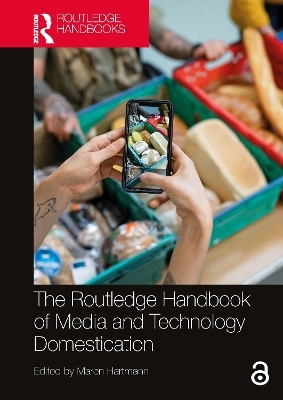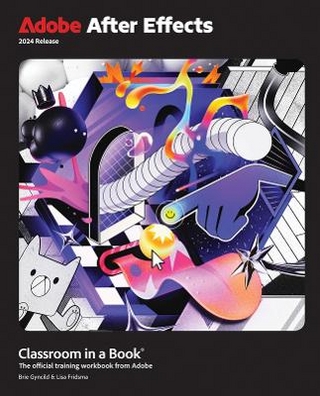
The Routledge Handbook of Media and Technology Domestication
Routledge (Verlag)
978-1-032-18414-2 (ISBN)
Combining the work of the long-established experts in the field with that of emerging scholars, the chapters explore both the domestication concept itself and domestication processes in a wide range of fields, from smartphones used to monitor drug use to the question of time in the domestication of energy buildings. The international team of authors provide an accessible and thorough assessment of key issues, themes and problems with and within domestication research, and showcase the most important developments over the years.
This truly interdisciplinary collection will be an important resource for advanced undergraduates, postgraduates and academic scholars in media, communication and cultural studies, sociology, anthropology, cultural geography, design studies and social studies of technology.
Chapter 3 of this book is freely available as a downloadable Open Access PDF at http://www.taylorfrancis.com under a Creative Commons [Attribution-Non Commercial-No Derivatives (CC-BY-NC-ND)] 4.0 license.
Maren Hartmann is a Professor of Communication and Media Sociology at Berlin University for the Arts, Germany.
"One Life Is Not Enough" – Another kind of introduction PART I – (Re-)thinking domestication (Re-)thinking domestication: introduction 1. Domestication and personhood 2. Domestication as user-led infrastructuring 3. Conceptualizing re-domestication: theoretical reflections and empirical findings to a neglected concept 4. Making domestication research policy relevant 5. A dialogue on domestication 6. The dark side of domestication? Individualization, anxieties and FoMO created by the use of media technologies PART II – Extending domestication Extending domestication: introduction 7. Domesticating mobile communication by women in the Global South 8. The ceaseless domestication of mobile communication in Asia: benefits, trade-offs and responses 9. Nuanced domestication of social media: intrigues of situated cultural affordances in Kenyan local ecologies of knowledge 10. The domestication of smartphones: lessons from case studies in Africa 11. Domestication theory: reflections from the Kalahari PART III – Technologizing and designing domestication Technologizing and designing domestication: introduction 12. Processes of incorporation. The relationship between socialization and domestication of technoscience 13. Sitting on the sofa, watching television: methodological reflections on the study of material articulations 14. Data domestication: exploring sensors in the future everyday through design fiction 15. A journey from domestication approaches to practice-based theories 16. The mutual domestication of users and algorithms: the case of Netflix PART IV – (Counter-)domesticating media and technologies (Counter-)domesticating media and technologies: introduction 17. Domesticating the domesticators: where have all the agents gone? 18. Counter-domestication through infrastructural inversion: user empowerment in digital platforms 19. Rooflessness running wild? Taming technologies, taming our fears 20. Configuring the "Cuban Internet": a networked domestication approach 21. Feeling good, feeling safe: domesticating phones and drugs in clubbing PART V – Contextualising domestication? Contextualising domestication?: introduction 22. Understanding and resolving the "content-context conundrum" in ICT domestication research 23. Situational domestication: personal technology and public places 24. The digital detox camp: practices and motivations for reverse domestication 25. Unpacking play: a domestication perspective on digital games 26. Playing at home 27. Variety within domestication research: time, perceptions and interactions PART VI – Homing in on domestication? Homing in on domestication?: introduction 28. Lockdown screen worlds: the domestication and re-socialization of Zoom 29. Broken domestication: the resonant politics of voice in gendered technology 30. What do women want? Radio's gendered domestication 31. Domestication and older adults – changing definitions of home and family 32. M-learning: appropriating social media for pedagogy in Kenya 33. Digital inclusion and domestication
| Erscheinungsdatum | 11.07.2023 |
|---|---|
| Zusatzinfo | 3 Tables, black and white; 3 Line drawings, black and white; 28 Halftones, black and white; 31 Illustrations, black and white |
| Verlagsort | London |
| Sprache | englisch |
| Maße | 174 x 246 mm |
| Gewicht | 1060 g |
| Themenwelt | Kunst / Musik / Theater |
| Informatik ► Grafik / Design ► Film- / Video-Bearbeitung | |
| Informatik ► Software Entwicklung ► Spieleprogrammierung | |
| Mathematik / Informatik ► Informatik ► Web / Internet | |
| Sozialwissenschaften ► Kommunikation / Medien ► Medienwissenschaft | |
| ISBN-10 | 1-032-18414-0 / 1032184140 |
| ISBN-13 | 978-1-032-18414-2 / 9781032184142 |
| Zustand | Neuware |
| Informationen gemäß Produktsicherheitsverordnung (GPSR) | |
| Haben Sie eine Frage zum Produkt? |
aus dem Bereich


